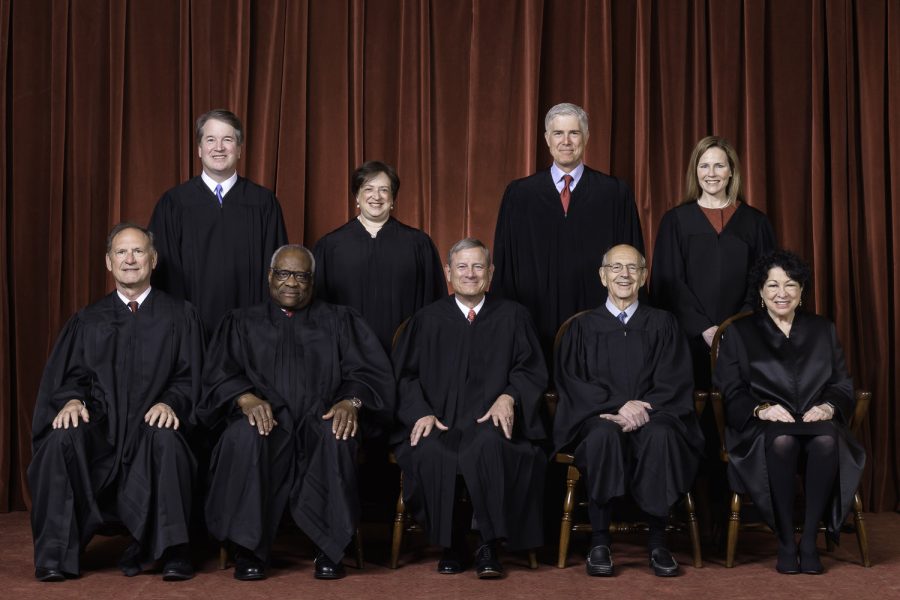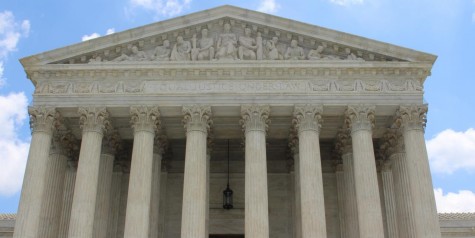After 27 years on the Supreme Court, Justice Stephen Breyer, age 83, officially resigned from his position and will step down during summer recess.
His resignation calls for an appointment by President Joe Biden, who promised during his campaign to appoint the first Black woman to the Supreme Court if given the opportunity. The court currently sits at a 6-3 supermajority, with six judges following a more conservative interpretation of the Constitution and the other three a more liberal one.
Breyer strategically chose his time to step down with upcoming elections likely to cause Democrats to lose their majority in the Senate. Retirement from the Supreme Court is somewhat uncommon as 44.5% of all judges have died in office, but Breyer’s choice was vital in keeping the current split on the court. Appointing and approving a candidate must occur in a timely manner if Democrats hold a likely chance of approving their candidate of choice.
Breyer’s letter of resignation specifically states that he will only be stepping down if his successor is sworn in by summer recess as the imbalance of the court could sway even further if his replacement is not chosen before the next election.
Although the Supreme Court is technically not affiliated with parties, the candidates appointed often soundly have the same ideologies as the president who appointed them. Lifetime tenure within the position entails a consistent interpretation of the Constitution, but this interpretation may not reflect the ideologies of the majority of American people. The Supreme Court is currently heavily weighted towards conservative ideologies, while Congress and the presidency are both Democratically run.
“It is important to consider the experience of the proposed appointee as the appointee will impact the country decades after the President leaves office,” senior Claire Haas stated. “Even the varying subtleties of the writing of SCOTUS decisions have affected the country for centuries after. Therefore, if justices come from different backgrounds, a wider range of opinions can be heard. Having a court that is representative of the US will help to make sure that everyone can have an opportunity to have the freedoms that the U.S. values so heavily.”
Although a new liberal appointee cannot affect the 6-3 balance, Biden has promised to appoint a Black woman to the Supreme Court to make the court a stronger representation of the American population. At the forefront of possible nominations are D.C. Circuit Judge Ketanji Brown Jackson, who has already faced the Senate, and California Supreme Court Justice Leondra Kruger.
Though both candidates prove to be soundly qualified, the president has received backlash from the public for limiting his candidate selection pool with his promise to appoint a Black woman. Senate Majority Whip Dick Durbin tweeted that Biden has the opportunity to bring “diversity, experience and an even-handed approach to the administration of justice” by appointing a Black woman, while Senator Ted Cruz has claimed that it is offensive to a “stronger qualified candidate” to not be appointed because of their race or gender.
Biden’s limitation of the candidate pool supports diversity in politics and helps those who have been systemically oppressed to have a platform in the political world. “I think [Biden] had the right idea of trying to incorporate more diversity into the Supreme Court. As long as he picks someone qualified and intelligent, that’s all that really matters,” senior Harper Clark said.
Despite previous presidents promising to appoint past judges based on specific attributes, Biden’s decision has been particularly divisive. After the death of Ruth Bader Ginsburg (RBG), 78% of Democrats and 55% of Republicans thought it was at least somewhat important that a woman was appointed to the Supreme Court to take her place. President Donald Trump appointed Amy Coney Barrett as RBG’s successor just 30 days after the official nomination announcement of her candidacy.
While the portion of Democrats who support Biden’s proposal of a Black woman taking the place of Breyer is essentially the same at 82%, only 19% of Republicans approve. There are a variety of factors influencing approval ratings, such as party affiliations and whose seat is being filled, but the blatant racism surrounding the situation is undeniable. Louisiana Senator John Kennedy openly disapproved of Biden’s plan and stated, “I want a nominee who knows a law book from a J. Crew catalog.”
“I think that to most people, it was a no brainer that a woman should replace RBG because she worked so hard to fight for women’s rights. When the idea of a Black woman was brought up, that’s when people started to get uncomfortable,” Clark said. “Sadly, it is no surprise to me that there was a decrease in approval of a Black woman being appointed. For years, the majority of the white population only saw themselves reflected in the government and to imagine the idea of more diverse cultural representation and less of their own representation probably scared them.”
If the president and Democratic Senate are able to appoint and approve their candidate of choice in a timely manner, the situation has the possibility to run somewhat smoothly. If the upcoming election flips the Senate and Breyer’s successor is yet to be replaced, a variety of obstacles stand in the way of Biden’s proposal.
Appointing a Black woman would bring both perspective and diversity to the Supreme Court, while simultaneously creating a court that better represents the American people. As Senator Patty Murray said, “[t]he court should reflect the diversity of our country,” which Biden and the Senate have the opportunity to work towards with their choice of candidate.


















